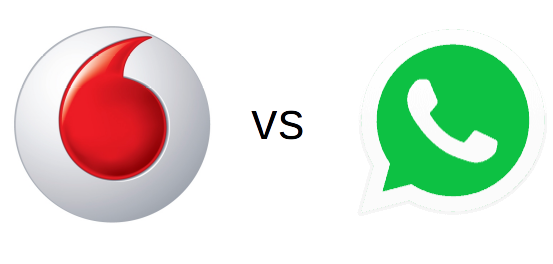Vodacom and MTN: hands off WhatsApp and Skype
Companies want to restrict our access to new data services because they're harder to spy on
South Africa’s two biggest cellular networks, Vodacom and MTN, have asked Parliament to “regulate” services such as Whatsapp, Skype and Viber which compete with their voice and SMS offerings.
Among the reasons they give for doing this is that such services are more difficult to spy on than normal cellular ones, which are subject to RICA (the 2002 Regulation of Interception of Communications and Provision of Communication-Related Information Act). They also claim that their ability to invest in their networks is threatened due to loss of profits.
The companies have not made public what kind of “regulation” they envisage but we can guess that they would like to do what cellular networks in Morocco have done, which is simply to block such services. Moroccan citizens responded with a dramatic boycott of cell phones. But we in South Africa need not prepare for anything as dramatic. We have a more accountable system in which ICASA (The Independent Communications Authority of South Africa) and Parliament oversee the activities of the cellular companies.
Voice calls made using data have been around for some years, the best-known service being Skype. But now they are being adopted on a larger scale, due to Facebook and its subsidiary WhatsApp. The technical term for them is Voice Over Internet Protocol (VOIP) but the cellular companies have included them in a new term: “Over The Top” (OTT) services, which they claim “make no contribution to the networks”.
Interestingly, latecomer to the market Cell C has taken the opposite position and is already offering some voice calls for only the cost of the data used to access the online service. Cell C argues that not only do they make a profit on the data used to make calls, but also on the data used to receive them. This position was backed at the parliamentary committee hearing by Professor Alison Gillwald who showed that cellular companies are among the most profitable in the country, and are constantly investing in their infrastructure as well as paying good dividends to shareholders.
Companies offering OTT services also made presentations. One of them, Google, pointed out that representatives of civil society had not been invited. For example, the Right2Know campaign only heard about the session a few days beforehand and wasn’t able to make a presentation. Right2Know later issued a statement condemning Vodacom and MTN’s position and calling on Parliament not to prevent competition in the voice and message market, as a drop in prices will be good for citizens, especially the poor. It will even be good for people who do not use the smartphones that access the Internet.
Hopefully opposition from the tech sector, as well as the sheer impracticability of defining a clear boundary between OTT services and other Internet services, will prevent government from interfering. However, if It does try to protect the super-profits of Vodacom and MTN, it must expect a range of challenges from civil society, from protests to court cases.
Views expressed are not necessarily GroundUp’s.
Support independent journalism
Donate using Payfast

Don't miss out on the latest news
We respect your privacy, and promise we won't spam you.
Next: HIV-positive prisoner denied antiretroviral treatment
Previous: City says “a few individuals” blocked the Mfuleni housing project
© 2016 GroundUp. 
This article is licensed under a Creative Commons Attribution-NoDerivatives 4.0 International License.

